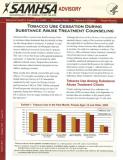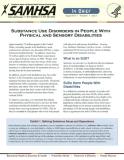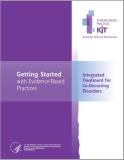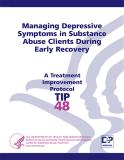
This brochure provides people living with chronic pain and mental illness, substance use disorders, or both with strategies for working with their treatment and service providers to decrease pain without negatively impacting recovery. It explores counseling, exercise, and alternative therapy, and medications.
Units per Product
Download
You Can Manage Your Chronic Pain
File Type: PDF
File Size: 2.85 MB







